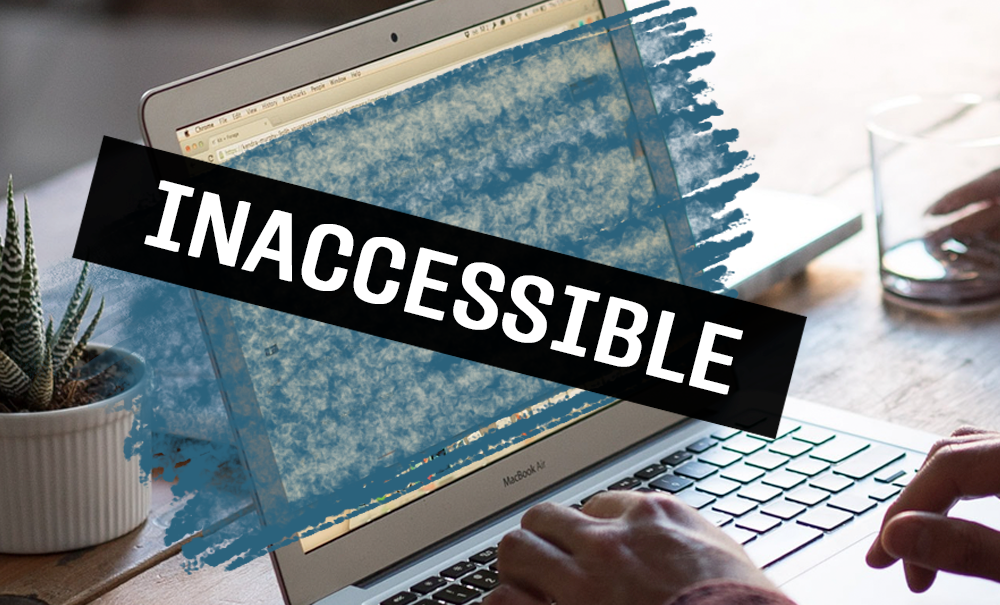The World Wide Web at your fingertips, right? Mostly, but not for everyone.


The Internet is everywhere. It is referenced on TV and radio, on bus signs, in newspapers and magazines. It moved from academia and government use to become so widespread that many consider it an essential service. I am among them. There is little one can do without accessing the Internet in one way or another:
- reaching government services
- filling in online forms
- finding job postings and applications
- banking and paying bills
- attending webinars and zoom meetings
- listening to music and podcasts
- using social media
- watching video
- reading news, audiobooks, and e-books
The list is long.
Access is easy. Get a computer, an Internet service provider, a cell phone, take a few courses, and there you have it. The World Wide Web at your fingertips, right?
Well, most people might think so, but not everyone.
What if you are a person with a disability? Perhaps your hearing is affected or your vision. Or maybe you have mobility issues that impact your use of the mouse. You may have a cognitive or learning disability that makes website content hard to understand. Or flashing graphics could trigger an epileptic seizure. Access to information gets more complicated if you have more than one disability. Can you access the Internet under these circumstances? The answer, unfortunately, is not always.
If a website does not have captions for its videos, then it is not accessible. Poorly organized information or overwhelming large sections of text might make people give up trying to read the content. Keyboard commands need to have code to navigate the site. Often the expectation is to use the mouse to “click” on things, but some people can’t use a mouse. Maybe a screen reader cannot read the HTML elements that speak the web content to a blind user. Perhaps the colour contrast is not strong enough to be seen, and important information gets lost. Will the video contain described audio so people who are blind or have a visual disability can access the content? These examples are all showstoppers for site users with disabilities.
Without these accessibility features, a website is not accessible to millions of users around the world.
- These customers cannot purchase products.
- Critical information does not reach these users.
- These clients cannot fill in a relevant form.
And more often than not, the user has no other way to contact you using another device or form of technology.
I have been losing my vision since I was 24 years old. Slowly, over time, my sight has degraded to the point now that I can no longer read printed material. Books, newspapers, magazines, and other printed periodicals are no longer accessible to me. A computer, cell phone and the Internet require adaptive technology for me to access them. I need screen reading software that reads printed material to me as I (like most people who are blind) do not read Braille. I do have one advantage. I started using computers before Windows existed; before the Internet was used outside of government and academic circles. The technology to access computers was in its infancy as well. My computer abilities grew alongside the changing software to access the information.
But now, the technology to access computers and the Internet is powerful. These new tools have helped me in many ways. However, computer screen-reading technology continues to be limited by inaccessible websites, software applications, and cell phone apps.
I encourage you to develop websites with accessibility in mind. People with varying disabilities will benefit, including screen reader users, people with mobility considerations, and folks who can benefit from simple and clear content design. But so will your business because you will reach so many more potential customers.
Accessibility should not be an afterthought.
The information highway that is the Internet must be made accessible. It is no longer a nice thing to do, but an essential part of modern life - for everyone.
P.S. If you would like to hire me to audit your website for accessibility, contact us at Accessibrand. You will be glad you did.
